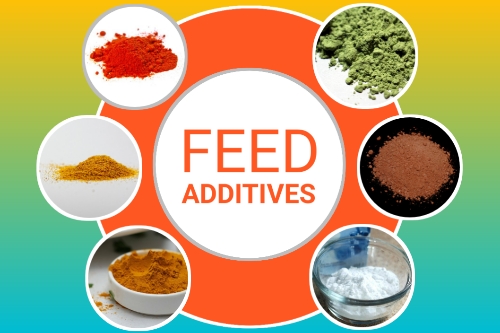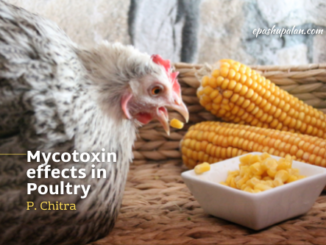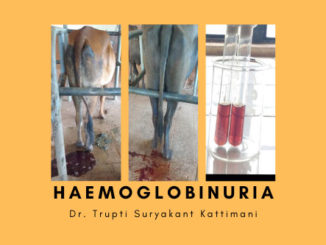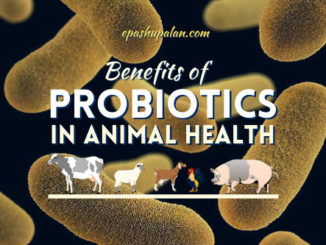The products which are fed to animals in addition to feed to improve its quality thereby affecting animal health and productivity are referred to as feed additives. High producing dairy cows need additional nutrients to maintain their production level in addition to optimum body condition. Farmers also need to carefully manage their profit margins because feed costs are rising every year and milk prices with demand many times vary. Some of the commonly used feed additives in dairy rations are:

(1) Magnesium oxide
- It helps to increase pH of rumen and also raises the uptake of plasma acetate
- Uptake of fat by udder increases and fat percentage in milk rises
- 50-80grams of magnesium oxide per day per cow can be fed for desired performance of animals
(2) Niacin (nicotinamide)
- It is useful for metabolization of body fat during early lactation in cows which further reduces the occurrence of ketosis.
- Niacin is actually a B vitamin (B3) and is usually not considered an essential feed additive because rumen microbes also manufacture it
- Since niacin plays an important role in many body functions, it can be used @6-12 gram/cow/day.
(3) Buffers
- Buffers maintain rumen health as they protect it from acidity which many times result from feeding high energy diets meant for high yielding animals
- Buffers improve fiber digestion and dry matter intake increasing both milk and milk fat yield
- Most commonly used rumen buffer is sodium bicarbonate
(4) Ionophores
- Certain gram positive bacteria in rumen produce methane and also ferment protein thereby resulting in wastage of energy and protein. When through some additive the growth of these bacteria is somehow reduced, benefit accrues to the animal in terms of efficient energy use and increased growth rate. Ionophores serve exactly this purpose.
- Monensin and lasalocid are regularly used ionophores. They modify the sodium and potassium balance within these gram positive bacteria found in rumen which further leads to increase in cell acidity and inhibition of growth.
- Many researchers have also reported that incidence of ketosis reduce with ionophores because they cause increase in propionate production in rumen rather than acetate. This further improves milk production from animals.
(5) Methionine hydroxyl analog (MHA)
- Methionine hydroxyl analog increase milk fat production so often included in diet of lactating cows.
- However in pig and poultry rations, it is a supplemental source of methionine.
(6) Rumen protected choline
- Choline is actually a vitamin which is manufactured by microbes in rumen. However sometimes its amount produced may be insufficient for the animal as it is essentially required by animal during transition period to rid the liver of deposited fat so that animal may not suffer from fatty liver syndrome.
- It can be supplemented @25-45 grams/animal/day.
- It is also reported that choline is required in body as part of cell membranes and can be made even from methionine, an essential amino acid. So supplementing choline in animal ration can have a methionine-sparing effect.
(7) Direct fed microbials (probiotics)
- Probiotics are actually live bacteria which are meant to cause balance of bacteria in intestine of animal and this leads to reduction of those bacteria which are not useful (instead can be potential source of harm to animal) like Salmonella, E.coli etc. They do so by reducing pH in intestine or by directly producing antibiotics and other inhibitory compounds.
- They are often used to enhance the enhance the growth of young calves which need to be protected from pathogens and given additional nutrition.
- Sometimes calves suffer from overeating disease due to excess intake of grains. Here a bacteria Clostridium perfringens increases in number and releases a toxin which travels to blood causing death in few hours.
- Lactobacillus also benefits the animal intestine as they can decease the amine level.
(8) Decoquinate
- It is often mixed in milk replacer or calf starter to prevent occurrence of cocciodiosis in calves.
(9) Yeast products
- These are classified into two types depending on their availability in market: yeast culture as well as live yeast products.
- Their intake can have beneficial impact on rumen microbial growth, dry matter intake as well as milk production.
(10) Enzymes
- These aid in the digestion of feed components like protein, fiber and starch
- For the high yielders and those animals under stress, enzymes can aid in digestion process
- However response to their supplementation in diet are variable.
Calcium propionate, biotin, micotoxin binders and anionic products are also sometimes used as feed additives. However their use often depends on cost benefit ratio.






Be the first to comment